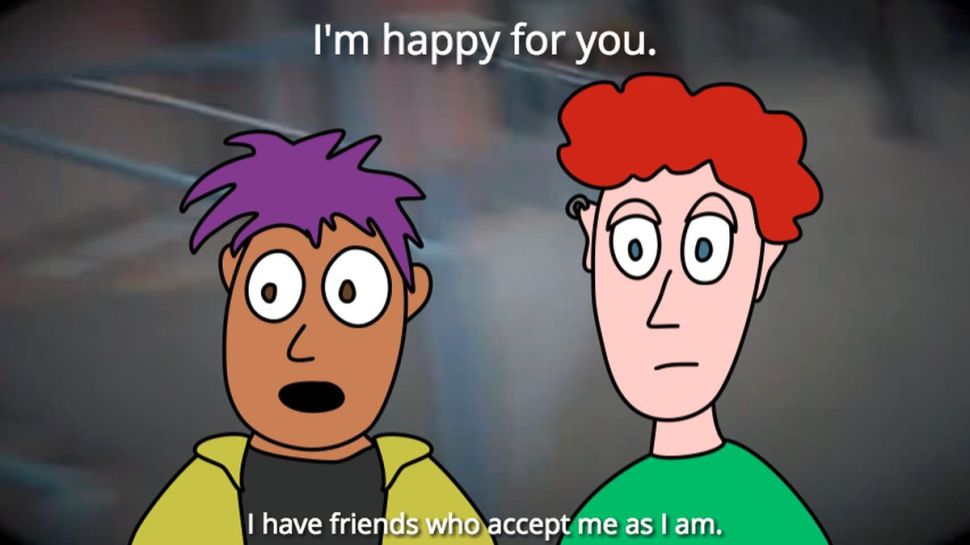
Most of us do it: We imagine the conversations we'd have with an important friend or partner from years ago, now that everything's changed. You're a totally different person now than you were then, and now there's probably some things you kind of want to explain to them, lingering memories you still feel bad about, things like that.
It's such a universal human thing—of course it isn't possible to follow all threads back into our past and tie them up neatly. Sometimes it's not ethical to dredge the other person's history just so you can get a sense of closure. So the conversations we long to have with the people of our past remain theoretical, even if we can imagine them vividly, can imagine what we would expect the other person to say, what we wish they would say.
Conversations We Have in My Head is a new, simple game by whiz-of-all-trades Squinky that deals with this theoretical space. In the game, Squinky imagines some aspect of themself (a character called "Quarky") talking to an ex about (among many things) the past, their relationship with their family, and coming out as genderqueer, apparently a new development since the last time Quarky and the ex spoke. Talking to an ex, who once knew you a bit differently, about such a shift in how you identify and express yourself is its own unique circumstance, and it's fascinating to see it illustrated in a game.

What I like about this vignette is that you play as the ex, in a sense—occasionally you have the option to interrupt the other character with phrase prompts that appear on the screen, either to respond or to ask questions. Or, you can just let them speak to you and simply listen—clearly they need to speak to you, and the desire to offer that character a compassionate or curious response is in interesting conflict with the wish not to interrupt them.
Ultimately I played Conversations We Have in My Head a few times to experiment with all the possible directions the conversation can take—which is fitting, because these kinds of things and their different possibilities often repeat gently in the mind, following their different paths. You can try it yourself for free or pay-what-you-want.
Squinky's games often focus on "gender identity, social awkwardness, and miscellaneous silliness" as themes; you can see some more of their work on their online storefront, or back their various projects via Patreon.





